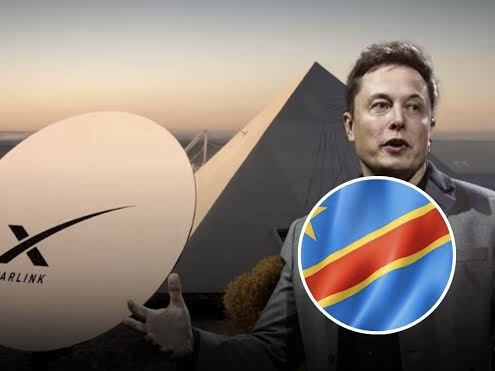SpaceX’s Starlink, the pioneering low-earth orbit (LEO) satellite internet service, officially launched in the Democratic Republic of Congo (DRC) on Wednesday. This launch marks a significant step in expanding high-speed internet access across Africa.
This launch comes after the Congolese government reversed a previous ban and granted Starlink a telecommunications licence, allowing the locally registered Starlink DRC S.A. to operate as an internet service provider nationwide.
Breaking barriers: Starlink’s entry into the DRC’s challenging terrain
The DRC’s vast and often remote landscape has long made traditional internet infrastructure deployment difficult and costly. As of early 2025, only about 30 per cent of the population had internet access, and millions remain offline, limiting educational, economic, and social opportunities.
Starlink’s constellation of low-Earth-orbit satellites bypasses the need for ground infrastructure, delivering fast, reliable broadband to even the most isolated communities.
Elon Musk announced on May 4, 2025, via X, “Starlink available in Congo!” signalling the company’s readiness to serve the country’s underserved regions. Unlike conventional satellite internet, Starlink offers low-latency connections, which can transform sectors like healthcare, education, and commerce by enabling real-time communications and access to global information.
From ban to launch: Navigating regulatory challenges
Starlink’s journey in the DRC was not straightforward. In March 2024, the Congolese Postal and Telecommunications Regulatory Authority (ARPTC) banned the service, citing national security concerns.
Military officials feared that rebel groups, such as the Rwandan-backed M23, might exploit the technology for insurgent communications.
However, in a significant policy shift in May 2025, the government granted Starlink a license, recognising the urgent need to improve the country’s digital infrastructure.
The license enables Starlink DRC S.A. to operate legally as an internet service provider, expanding Starlink’s footprint to 22 African countries. This move aligns with Starlink’s mission to close Africa’s digital divide by providing affordable, high-speed internet to remote and underserved populations.
Starlink’s launch in the DRC signals a new era for connectivity in a country where internet access has been hampered by conflict, geography, and infrastructure gaps.
Its satellite technology promises to unlock new digital horizons for millions, offering opportunities previously out of reach for many Congolese communities.











